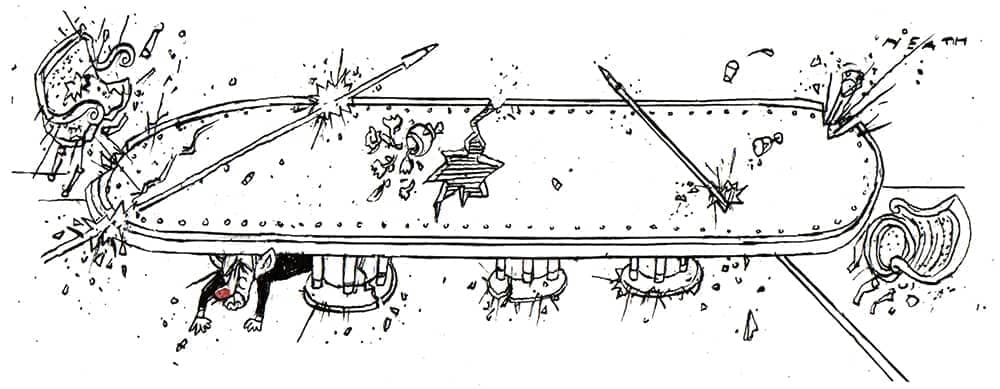Home
Boris Johnson, the Prime Minister, said of the invasion of Ukraine by Russia: ‘Never in all my study or memory of politics and international affairs have I seen so clear a distinction between right and wrong, between good and evil, between light and dark.’ He was speaking during a visit to the Ukrainian Catholic cathedral in London, where he lit a candle. He flew off to visit Poland and Estonia, and said he was worried that Vladimir Putin might ‘Grozny-fy’ Kiev, which would be ‘an unalterable moral humanitarian catastrophe’. Britain might take in 200,000 Ukrainian refugees after a scheme for close relatives of Ukrainians in the UK was widened to include other family members. Asked if she supported British citizens who might join an international legion defending Ukraine, Liz Truss, the Foreign Secretary, said: ‘Absolutely, if people want to support that struggle I would support them.’ She did not mention the Foreign Enlistment Act of 1870, which Dominic Grieve, a former attorney general, said forbade such action.
Bernard Looney, BP’s chief executive, resigned from the board of Rosneft, the Russian energy company, in which BP set about getting rid of a 19.75 per cent share. Shell was to leave its joint ventures with the Russian state energy firm Gazprom. Average UK petrol prices rose above £1.51. A new law banned ships with any Russian connection from entering British ports. Britain joined the EU, United States and Canada in cutting some Russian banks off from the Swift international payments system. Roman Abramovich handed day-to-day stewardship of Chelsea football club to the trustees of its charitable foundation.
In the seven days to the beginning of this week, 703 people had died with coronavirus, bringing total deaths (within 28 days of testing positive) to 161,224. (In the previous week, deaths had numbered 989.) Those with Covid remaining in hospital fell from about 11,400 to about 10,700. MPs will get a 2.7 per cent salary increase, receiving £84,144 from April. Rail fares in England and Wales rose by up to 3.8 per cent. The London Underground closed when the RMT union went on strike.
Abroad
Russia pressed on with the invasion of Ukraine it had begun on 24 February, which was slowed for five days by resolute resistance. Ukraine claimed 5,710 Russian soldiers had been killed. The President, Volodymyr Zelensky, took selfies in the streets of Kiev and rallied the nation. People sheltered in the Kiev metro during a weekend when Russian forces had stalled 20 miles away. Then a 40-mile Russian armoured convoy approached. Russia warned Kiev residents living near ‘relay nodes’ to leave their homes and bombarded the television tower. In Kharkiv, Russian paratroopers landed after the regional government building in the main square was devastated and residential areas bombarded. Russia shelled the port city of Mariupol and cut off electricity to its 500,000 residents. Ukraine held a day of talks with Russia on the border with Belarus. Prisoners with combat experience were freed so that they could help defend the country.
By 2 March 660,000 refugees were estimated to have fled Ukraine. President Putin said that he had ordered the transfer of ‘the deterrence forces of the Russian army to a special mode of combat duty’. In his State of the Union address, President Joe Biden of the United States announced a ban on Russian flights and, speaking of economic sanctions, said that Mr Putin ‘has no idea what’s coming’.
The EU said it would pay for weapons sent by member states to Ukraine. It closed European airspace to Russian aircraft including private jets, and banned the Russian propaganda channel RT, which Facebook and YouTube also banned from their platforms. In response to a request from President Zelensky to join the EU, the President of the European Commission, Ursula von der Leyen, without agreeing to a rapid accession, said: ‘They are one of us and we want them in.’ Turkey said that, under the 1936 Montreux Convention, it would prohibit Russian warships passing through the Dardanelles and Bosphorus, though it could not stop ships returning to base. Switzerland adopted similar financial sanctions as the EU. The total in the world reported to have died with coronavirus reached 5,963,224 by the beginning of the week. The West Indies bowler Sonny Ramadhin died aged 92. CSH






Comments